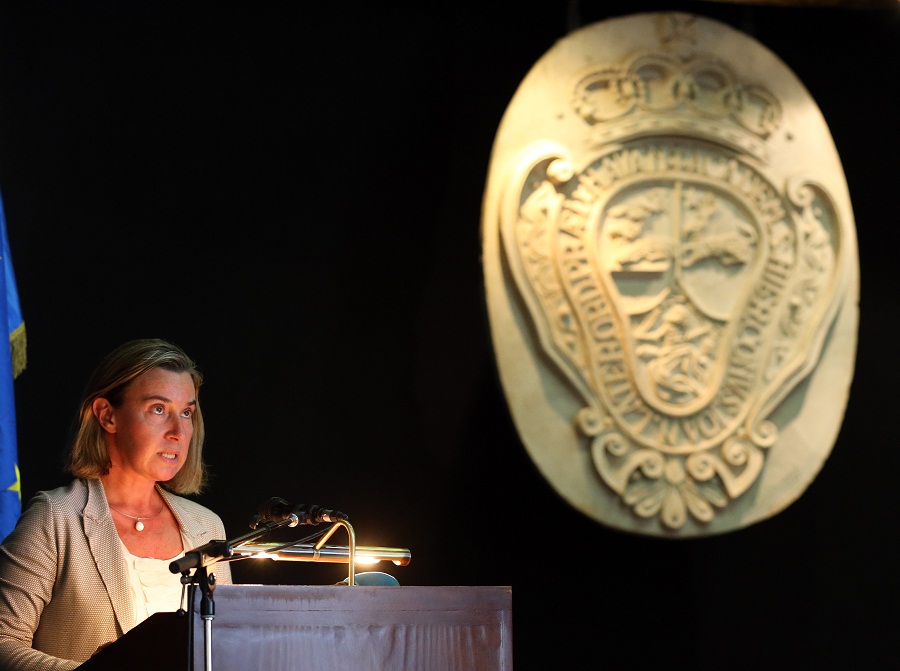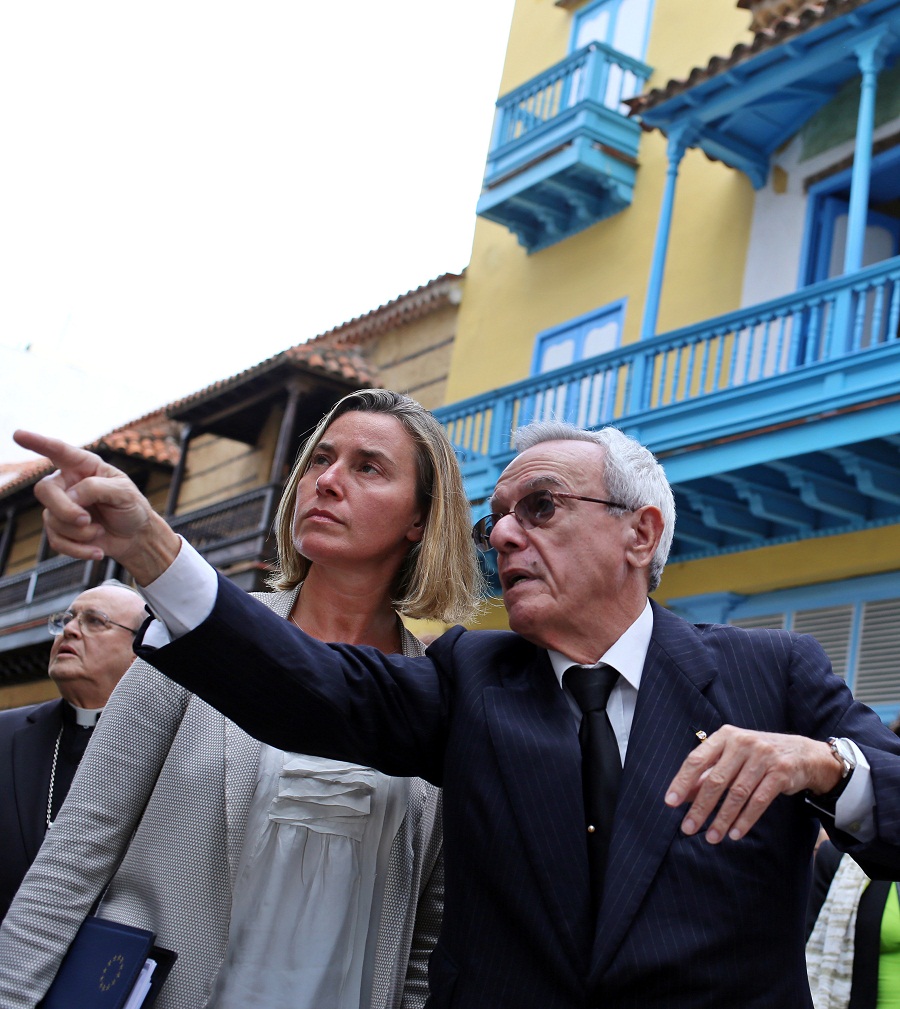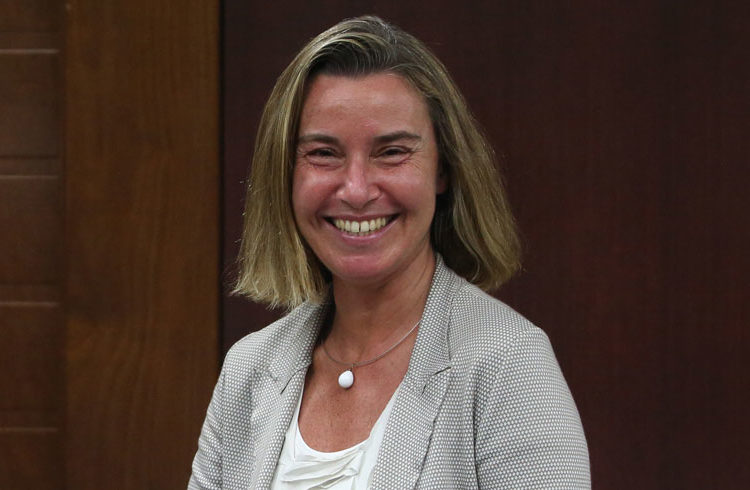Federica Mogherini, the head of European diplomacy, bet on “building bridges and opening doors” between the island and the European Community bloc through the dialogue and cooperation that facilitates their first bilateral agreement, which took effect in November.
“Against those who build walls and close doors, we the Europeans want to build bridges and open doors through cooperation and dialogue,” affirmed Mogherini, on a visit to Cuba, referring to the change in policy of President Donald Trump toward the island.

The Italian diplomat, who gave the lecture “The EU and Latin America” to university students and diplomats at the Havana San Gerónimo College, also deplored the “blockade” the U.S. has maintained on Cuba since 1962, an “obsolete and illegal” policy whose only effect is to “worsen the quality of life” of Cubans.
“We also reject the U.S. actions against Cuban citizens, enterprises and interests. We cannot accept that unilateral measures prevent economic and commercial relations with Cuba,” pointed out Mogherini in relation to the sanctions approved in November by Washington, which forbid doing business with enterprises linked to the military and limit U.S. citizens’ trip to Cuba.
The High Representative of the European Union for Foreign Affairs and Security Policy again visited the island to define with the Cuban authorities how to carry out the political and cooperation dialogue agreement that both sides signed in Brussels in December 2016.
The agreement provisionally came into force last November 1, but for its definitive application it must be ratified in the parliaments of the 28 member states.
This first bilateral agreement, “based on reciprocal respect,” is an “opportunity to raise our relations to a level that reflects the strong historic, economic and cultural ties that bind the EU and Cuba,” said Mogherini.
“It can be a solid instrument to support even more Cuba’s economic and social modernization…and opens new opportunities to increase our trade and investments and to promote common solutions to global challenges,” she underlined.
According to Mogherini, this agreement will also make it possible to “strengthen a dialogue on human rights,” a matter that both parties have dealt with during diverse bilateral meetings since 2015.
“Even if there are some differences in our respective views, the disposition to dialogue and mutual respect are always present,” she said.
Mogherini pointed out, as an example of cooperation, that the community bloc has backed Cuba with 9 million euros (some 10 million dollars) and provided humanitarian aid to more than 180,000 persons affected by the havoc wreaked by Hurricane Irma on the island last September.
Mogherini’s agenda in Cuba

On the first day of her visit, the head of European diplomacy met with Minister of Foreign Trade and Investment Rodrigo Malmierca and with Minister of Culture Abel Prieto, with whom she identified areas to strengthen cooperation, like renewable energy, food security or cultural exchanges.
She also visited in the city’s historic core another two “examples of bilateral cooperation”: a center for adolescents financed with European funds, and the Palace of the Second Corporal, also restored with the bloc’s financing and reinaugurated two years ago as the Center for the Interpretation of Cuba-Europe Cultural relations.
Today, on her last day in Cuba, she will meet with the speaker of the National Assembly (Parliament) of Cuba, Esteban Lazo, and with Cuban Foreign Minister Bruno Rodríguez, with whom she will deal with the startup of the bilateral agreement, in addition to preparing the first Cuba-EU Council to be held soon in Brussels.
Before ending her visit she will give a press conference and it hasn’t been ruled out that she meet with President Raúl Castro, with whom she already met in March 2016, even though that meeting is not part of her agenda.
Cuba-Europe: a new era
After almost two years of negotiations, which started in April 2014, Federica Mogherini and Bruno Rodríguez signed the definitive agreement in December 2016 in Brussels after the Union Council have the green light to the agreement that both parties signed in Havana in March of that year.
With this signing Cuba stopped being the only Latin American country that did not have a legal framework of this type to regulate its relations with the community bloc.
The instrument also supposes the end of the “common position,” the restrictive unilateral policy the EU imposed on the island since 1996 and that linked the dialogue to advances in human rights and a greater democratic opening.
EFE / OnCuba










